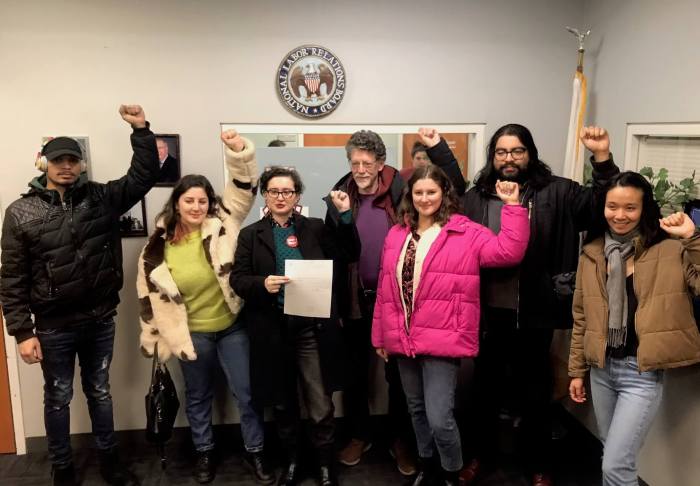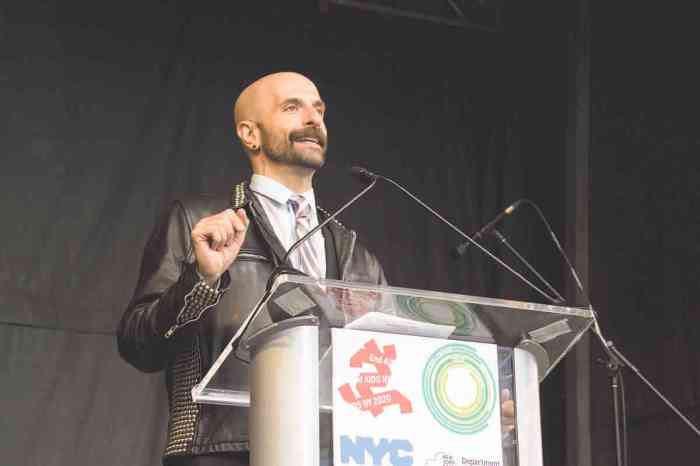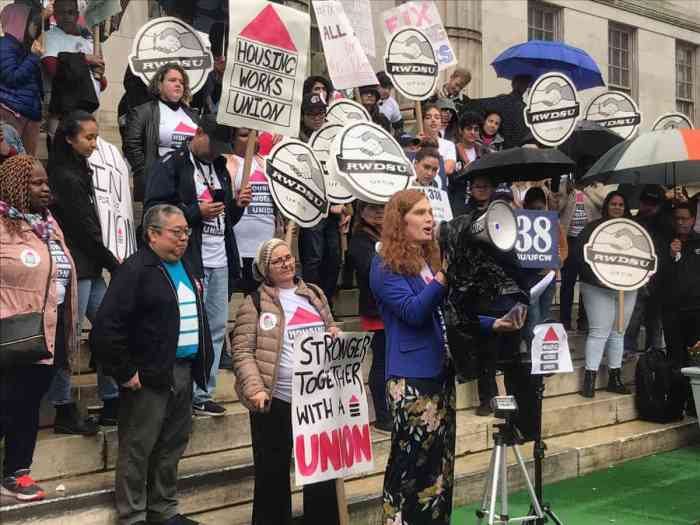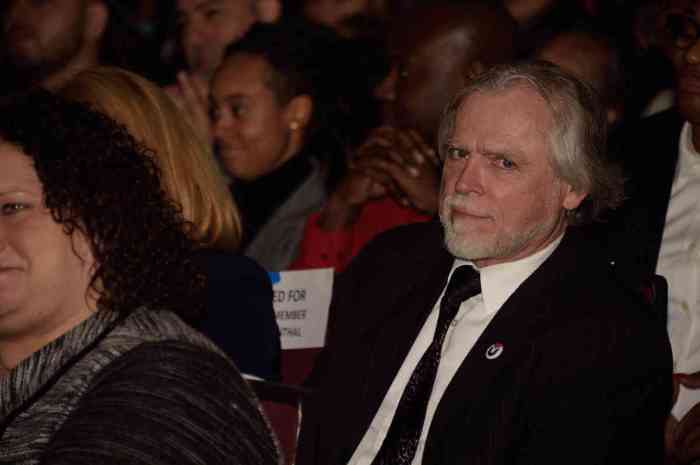With his selection of Dr. Mary Bassett to head the city’s health department, Mayor Bill de Blasio chose someone who is unknown to AIDS groups, but is praised by non-profits that have worked with her before.
“I don’t know her,” said Daniel Tietz, the executive director of ACRIA, an AIDS services and research group, when asked for comment on the January 16 announcement that Bassett would head the $1.5 billion agency.
Similarly, the heads of other AIDS groups, including Housing Works, Bailey House, and the Latino Commission on AIDS, and senior staff at Harlem United had no prior experience with Bassett, who has most recently taught at Columbia University’s graduate school of public health and has both a medical degree and a master’s in public health.
Dr. Mary Bassett wins praise from professionals she’s worked with, her comments please HIV groups
Bianca Lopez, the director of prevention at BOOM!Health, a Bronx group formed by the merger of Bronx AIDS Services and CitiWide Harm Reduction, had limited experience with Bassett when she was an intern in the city health department in 2004 and worked in Bassett’s division.
Bassett was known for “community collaboration” and she “always had a good rapport with the community,” Lopez said.
Bassett’s division was represented on a committee that was focused on maternal and child health. Two groups that were part of that committee praised Bassett.
“I’m very excited about Mayor de Blasio selecting Mary,” said Mario Drummonds, the head of the Northern Manhattan Perinatal Partnership. “She was always a great visionary and a great tactician… It’s a great choice.”
Peggy M. Shepard, the executive director at WE ACT for Environmental Justice, said Bassett’s experience at Harlem Hospital, at the city health department, and working in Africa made her a “fabulous choice.”
Bassett has roughly 30 years in public health. She is the author or co-author of 72 peer-reviewed journal articles dating back to 1986 on a range of topics including HIV and AIDS. At the city health department, she managed the city’s bans on smoking in public places and trans fats. She also oversaw the requirement that restaurants post calorie counts and managed several public health offices.
“She understands the culture there and certainly understands the expertise there,” Shepard said. “She’s a great listener, she’s got a great temperament… Even though there may be some similar policies to the Bloomberg administration, what will be different is listening to communities and helping to identify solutions that communities believe in.”
At a January 16 press conference, Bassett was asked what role post-exposure prophylaxis (PEP), which involves using anti-HIV drugs to prevent infection in someone recently exposed to the virus, and pre-exposure prophylaxis (PrEP), a strategy based on daily doses of an anti-HIV drug for people trying to prevent becoming infected, would play in a comprehensive HIV prevention strategy.
“Both post-exposure prophylaxis, which has been in place for years, and more recently pre-exposure prophylaxis have been found to be effective,” she said. “It’s been the experience that the uptake of pre-exposure prophylaxis has been quite low and I think that signals the fact that we have to talk to affected communities to try and understand what’s important to them, what they value. Certainly, in the engagement of prevention, which requires people to alter their behavior, we have to engage with communities to ensure that we are addressing their needs.”
The US Public Health Service issued its first guidelines on using PEP for occupational exposure –– such as an accidental hypodermic needle stick –– in 1996. Without recommending PEP, the federal Centers for Disease Control and Prevention (CDC) issued its first guidance for non-occupational exposures in 2005. PrEP was approved by the US Food and Drug Administration in 2012.
While PEP is broadly accepted, though not necessarily well-known, PrEP is controversial. PrEP substantially reduces the risk of becoming infected, but only when the drug is taken consistently. Every PrEP study has found that adherence among participants was poor. Bassett understood this.
“The problem with drugs is you have to take them,” she said after the press conference. “I know the evidence is good. I just have questions about relying on drugs.”
AIDS groups were heartened by Bassett’s comments.
“If those are her off-the-cuff remarks at a press conference, that’s pretty well informed,” Tietz said. “I’m relieved. I think that’s a great start and we look forward to an early meeting with HIV advocates and the community.”
In other comments, Bassett and de Blasio talked about addressing the health impact of poverty.
“If she really does understand the social determinants of health and is committed to working with the community before making sweeping changes in public health policy, we strongly endorse her,” said Gina Quattrochi, the chief executive officer of Bailey House, an AIDS housing group. “We’re happy that the mayor has chosen someone who understands the value of community input.”
Charles King, the president of Housing Works, said the comments were welcome, but noted that AIDS was not discussed until a reporter asked about it.
“Certainly, I was impressed with some of the things that were said at the press conference,” he said. “I did note that HIV/ AIDS was not specifically mentioned. Given that New York is the epicenter, I think we need to do some education.”
Harlem United issued a written statement in response to Gay City News’ request for comment.
“Harlem United is very much looking forward to working with the new Commissioner to (continue to) strategically and thoughtfully add pre-exposure prophylaxis (PrEP) to the city’s HIV prevention toolkit, especially for young MSM [men who have sex with men], women and communities of color who are bearing so much of the epidemic,” the group said. “It’s our hope that she will provide support for, and draw on, the expertise of our community health institutions not just to help create a demand for PrEP, but to ensure access and adherence.”



































